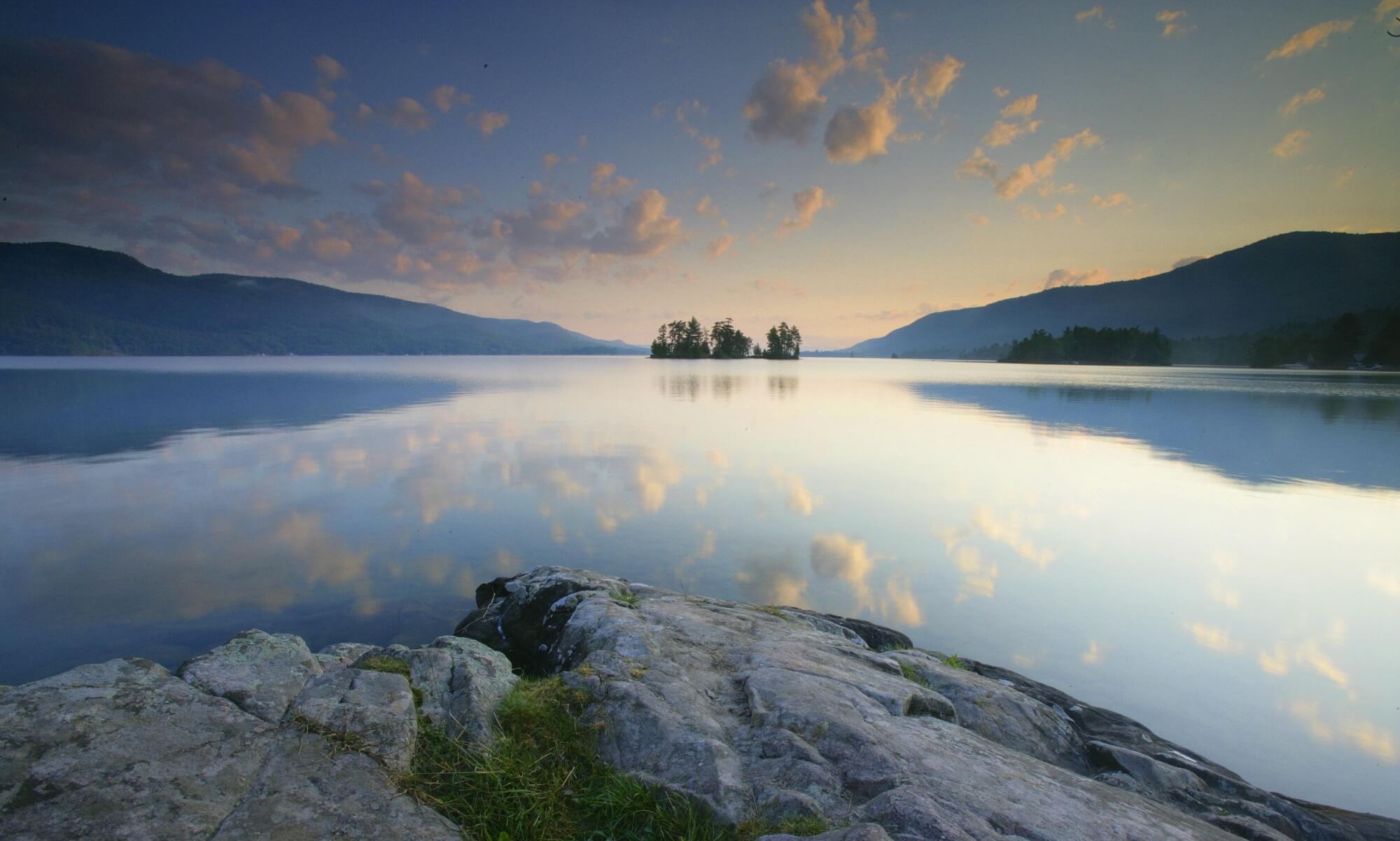Lake George received the best reading on a measurement for clarity among 113 New York lakes in 2009, the Lake George Association announced today.
Peter Leyh, an LGA member, was one of several LGA volunteers to participate in the 2009 Citizen Statewide Lake Assessment Program (CSLAP), coordinated on Lake George by the Lake George Association. On September 2, Peter was sampling water near Gull Bay on the north end of the lake, and sank a measuring disk for clarity, called a Secchi disk, into the lake. He was able to see the disk in the water at a depth of 13.55 meters, or almost 44 and 1/2 feet. No other lake participating in the CSLAP program last year could match it.
“This is great news for Lake George,” said Walt Lender, Executive Director of the Lake George Association, “but by no means does it mean we are free to relax our efforts to protect the Lake and keep it clean. In fact, it is just the opposite. This reading shows what a unique treasure we have in Lake George, and how diligently we must work to keep it that way. People need to know that this reading was taken at the north end of the Lake on a dead calm day. The clarity and cleanliness in the south end of Lake George, near West Brook, is not anywhere close to this. The water in Lake George flows from south to north, and it takes eight years for a drop to flow from the south to the north. Our challenge is to ensure that in eight years at Gull Bay our Secchi disk reading will remain at or beat 13.55 meters.”
Every summer since 2004, the Lake George Association has coordinated volunteers to assess water quality and clarity through the CSLAP program. The data gathered is used to help manage and assess trends in New York’s many lakes. The program is sponsored by the New York Federation of Lake Associations. In addition to CSLAP, the Lake George Association actively encourages adults and children to learn more about lake monitoring and stewardship aboard its Floating Classroom, a specially equipped catamaran which takes groups out on the Lake from May through September.
To learn more about CSLAP or how you can help Lake George, contact the LGA at (518) 668-3558 or visit the website: www.lakegeorgeassociation.org
